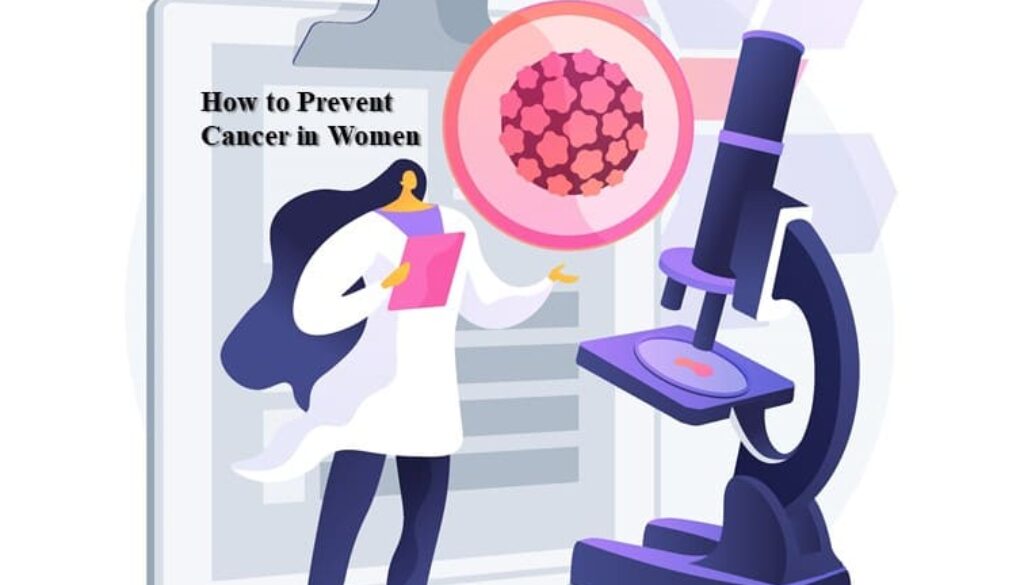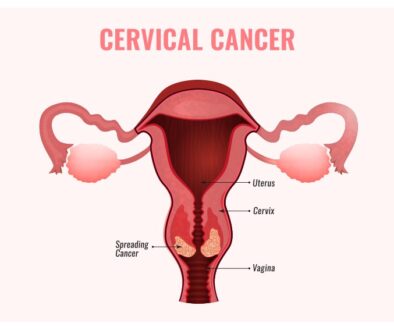Is It Possible to Prevent Cancer in Women?
How to prevent cancer in women?
You’ve certainly heard a lot about how essential it is to reduce your risk of developing cancer, but you’re probably wondering how much control you actually have. According to James Hamrick, MD, chief of oncology at Kaiser Permanente in Atlanta, “there is no rocket approach to entirely avoid cancer.” However, making lifestyle changes and receiving the correct health screenings can reduce your chances of contracting the condition.
A 2015 news release from the CDC reveals that 1 in 5 women hasn’t had their cervical cancer screenings, and 1 in 4 had not had their yearly breast cancer screenings. According to Kathryn Rexrode, MD, chief of the division of women’s health at Brigham and Women’s Hospital, “there are varying viewpoints on how to prevent cancer in women; and, for that, how often should you really be checked for cancer.
How do lessen the risk of developing cancer?
The best method to lower your cancer risk is to establish healthy, daily habits. Annual cancer tests should not be used as a substitute for taking preventive measures to safeguard your wellness. “Testing isn’t always sufficient, and it doesn’t reduce the risk of cancer. Screening is the process of detecting early cancer so that it can be treated rather than preventing it, as lifestyle variables would be “Rexrode expresses his opinion. Furthermore, certain malignancies, such as pancreatic cancer and ovarian cancer, are harder to identify by tests.
Tips to prevent cancer
- Vaccines – You can get a vaccine to reduce your likelihood of getting certain types of cancer. The human papillomavirus (HPV) vaccine, for instance, may protect against cervical, vulvar, vaginal, and anal cancer. Getting vaccinated against hepatitis B may reduce your chances of developing liver cancer.
-
Avoid alcohol
- According to Rexrode, drinking considerably increases the likelihood of acquiring breast cancer, among other diseases. “It’s not popular news, but alcohol is very much up there in terms of important things that have been demonstrated to change your protracted cancer risk,” Rexrode adds.
-
Balanced diet
- Being overweight and having a bad diet are also cancer risk concerns. A bad diet, being obese, and not working out are linked to one out of every 5 cases of cancer. According to Therese Bevers, a women’s cancer expert at MD Anderson Cancer Institute, eating a mostly plant-based diet lowers your risk of acquiring cancer.
-
Stop smoking
- Tobacco use dramatically raises your cancer risk. According to the CDC, habitual smokers have a 15 percent to 30 percent chance of having lung cancer. Tobacco munching and smoking should be avoided at all costs. As per John Hopkins Medicine, stopping smoking reduces your cancer risk by 40 percent even if you have a smoking history.
-
Wear sunscreen
- The most frequent type of cancer is skin cancer. According to Bevers, applying sunscreen with an SPF of 30 every day and shielding your skin with protective suits can significantly mitigate your risk of acquiring skin cancer. Moreover, avoid tanning beds, as they increase your risk of developing cancer.
-
Exercising regularly
- To lower your risk of developing cancer, you should do at least 150 minutes of physical activity per week,” adds Bevers. As per the American Cancer Society, keeping an ideal BMI, frequent workouts, and a usually well-balanced diet are connected to lowering cancer risk for at least 13 forms of cancer. Colorectal cancer, breast cancer, laryngeal and pharyngeal cancer, mouth cancer, kidney cancer, stomach cancer, and liver cancer are all examples.
-
Regular cancer screenings
- Most websites’ cancer screening recommendations are for people who have a normal chance of acquiring cancer, which means they aren’t customized to people who have a family background of the disease or another relevant risk factor. According to Rexrode, you and your family doctor can assess your danger and discuss how often you should be checked for cancer and whether you should undergo genetic screening. Book an appointment with me to know more about the prophylactic measures for preventing breast, ovarian, and cervical cancers.
Bottom Line
Genetics, environmental pollutants, and lifestyle habits are all major risk factors for cancer, but no definitive etiology has been established. Make changing actions to lower your risk of developing cancer. These include quitting smoking and drinking less alcohol, as well as keeping a healthy body weight. Learn more about how to prevent cancer in women




